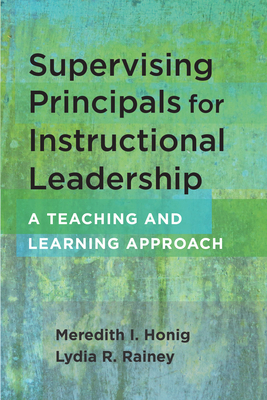
Honig, Meredith I.
product information
description
tructional Leadership specifies the conditions that district leaders can implement to help principal supervisors take a teaching and learning approach to their work. In particular, Meredith I. Honig and Lydia R. Rainey explore how these supervisors can most effectively support principals in becoming instructional leaders and developing the capacity to lead their own learning. The authors argue for a shift in supervisors' focus from a compliance and evaluation orientation to one in which they serve as learning partners for these principals. The professional development the supervisors offer principals must advance from group meetings focused on the delivery of information to intensive coaching differentiated to meet principals' needs. Using extended cases and detailed examples, the authors illustrate how supervisors associated with positive results teach rather than tell. These successful supervisors guide principals' learning with specific teaching moves such as modeling how to think and act like an instructional leader. Based on extensive research of district central offices, Supervising Principals for Instructional Leadership advocates for a transformation to the role of principal supervisors.
member goods
No member items were found under this heading.
Return Policy
All sales are final
Shipping
No special shipping considerations available.
Shipping fees determined at checkout.







